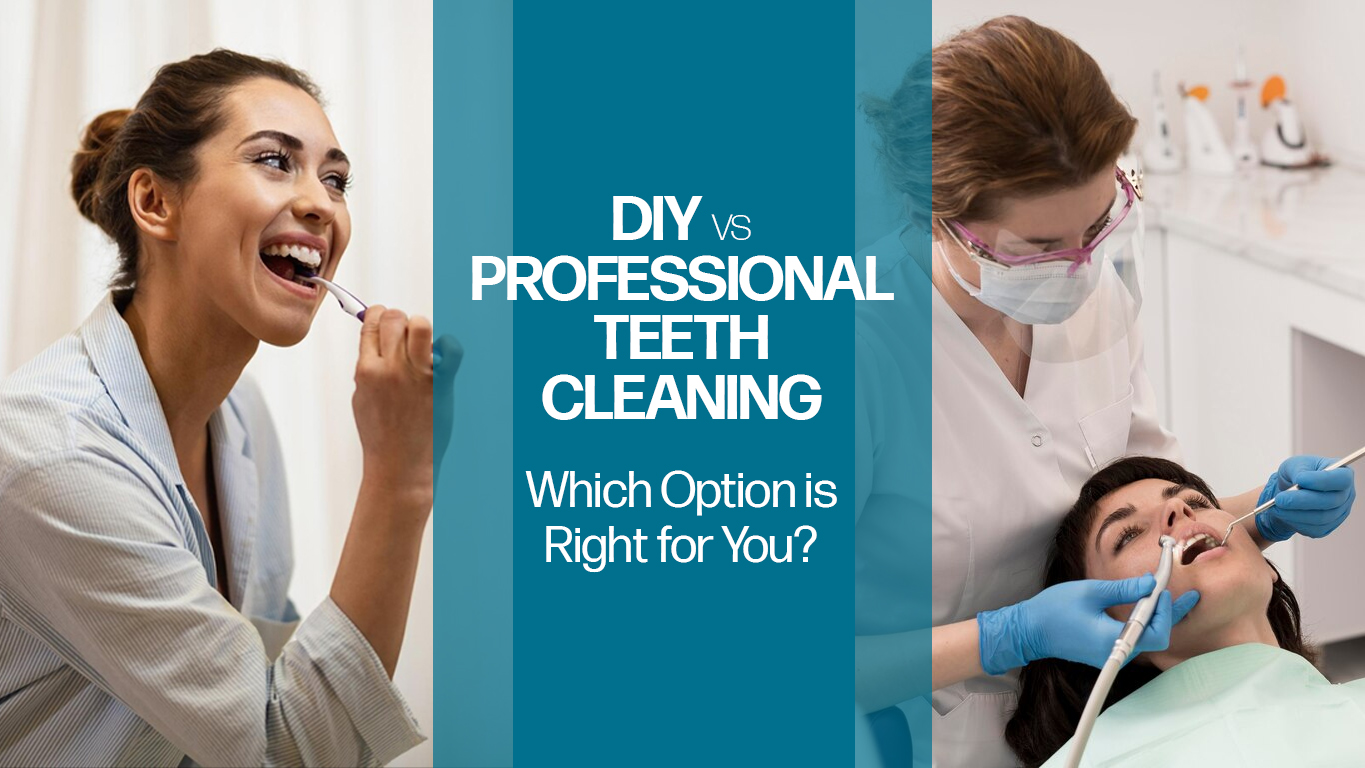DIY vs. Professional Teeth Cleaning: Which Option is Right for You?

Maintaining good oral hygiene is essential for a healthy mouth, but should you clean your teeth or get regular cleanings from a professional? The choice between DIY and professional teeth cleaning depends on your dental needs and preferences. Here’s a look at the pros and cons of each to help you decide what’s right for you.
1. DIY Teeth Cleaning
Daily at-home teeth cleaning is a must for controlling plaque and preventing tooth decay and gum disease. DIY options include:
- Brushing – Brushing thoroughly twice a day removes plaque build-up and surface stains. Use a soft-bristled toothbrush and fluoride toothpaste. Take your time to brush all surfaces. An electric toothbrush can aid plaque removal.
- Flossing – Floss once a day to clean in between teeth where your toothbrush can’t reach. Flossing removes plaque and food debris to prevent gingivitis.
- Mouthwash – Antiseptic mouthwashes produce a clean feeling and freshen breath when used after brushing. They help kill germs missed by brushing and flossing.
- Tongue scraping – Using a tongue scraper removes bacteria, fungi, and dead cells from the tongue’s surface to freshen breath.
- Interdental cleaners – Interdental brushes, floss picks, and water flossers clean tight spaces between teeth and just under the gum line that floss tends to miss.
- Over-the-counter whitening – Strips, gels, rinses, and toothpaste can lighten superficial tooth stains but not deeper discoloration.
Pros:
- Convenient and inexpensive. You can maintain your schedule.
- Promotes good daily oral hygiene habits.
Cons:
- Thorough DIY cleaning is time-consuming. Proper technique matters.
- Can miss plaque in hard-to-reach areas, leading to gum irritation.
- Does not address Tartar build-up below the gum line or treat gum disease.
2. Professional Teeth Cleaning
Visiting your dentist for a professional cleaning offers deeper cleaning not possible at home. A standard cleaning includes:
- Dental exam checking for cavities and gum disease.
- Removing built-up plaque and tartar above and below the gum line.
- Flossing and polishing all tooth surfaces.
- Debriding to deeply clean under the gum line.
- Fluoride treatment to strengthen enamel.
Enhanced cleanings like scaling and root planning treat moderate to advanced gum disease. The hygienist scales away rough spots on teeth and cleans deep below the gums.
Pros:
- Removes stubborn stains and tartar you can’t reach at home.
- Treats gum disease and tooth decay.
- Catches developing problems early.
- Fresher breath and a whiter smile following the visit.
Cons:
- More expensive than doing it yourself.
- Insurance may not fully cover deep cleanings.
- Need to make and keep appointments every six months.
Conclusion
Regular cleanings every six months, paired with diligent at-home care, offer optimal oral health for most patients. But if you’re prone to cavities or gum disease, you may require more vigilant professional care at Springvale Dental Clinic. During your visit, the dentists and hygienists will provide a thorough exam, cleaning, and treatment tailored to your needs. At Springvale Dental Clinic, we use the latest technology, like digital X-rays, for accurate diagnostics. The staff are highly skilled and gentle, making even deep cleanings comfortable. Also, discuss your dental history and needs with the dentist to determine an ideal cleaning schedule.
